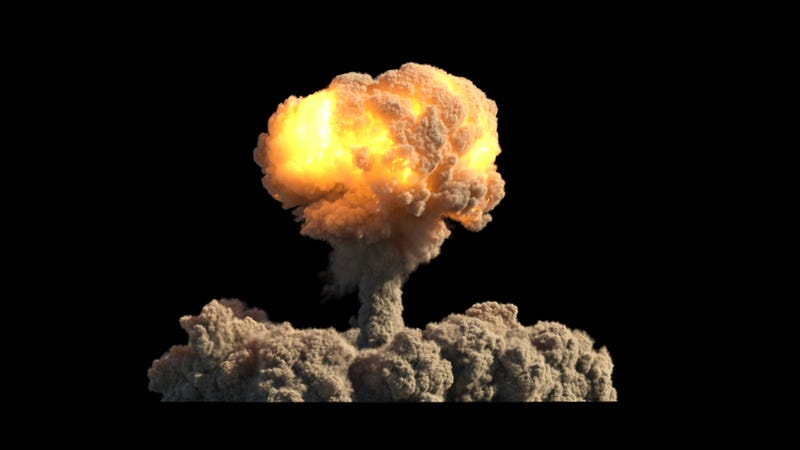
“Today, humanity is just one misunderstanding, one miscalculation away from nuclear annihilation,” said United Nations Secretary-General Antonio Guterres Monday in New York.
“The clouds that parted following the end of the Cold War are gathering once more,” he told attendees at the Tenth Review Conference of the Parties to the Treaty on the Non-Proliferation of Nuclear Weapons, which runs through Aug. 26. “We have been extraordinarily lucky so far. But luck is not a strategy.”
Guterres said the threat of nuclear danger is now at its highest point since the Cold War, an “open yet restricted rivalry,” between the U.S., the Soviet Union and their respective allies from around the end of World war II through the early 1990s.
According to the National Museum of American History, the Cold War became a nuclear arms race in 1949, when the Soviets detonated an atomic bomb. Previously, the U.S. and allied forces dropped atomic bombs on Hiroshima and Nagasaki in Japan during World War II.
The impact of these bombings is still felt today, according to the International Campaign to Abolish Nuclear Weapons.
“By the end of 1945, the bombing had killed an estimated 140,000 people in Hiroshima, and a further 74,000 in Nagasaki,” said the organization. “In the years that followed, many of the survivors would face leukemia, cancer, or other terrible side effects from the radiation.”
“Humanity is in danger of forgetting the lessons forged in the terrifying fires of Hiroshima and Nagasaki,” Guterres said Monday. He plans to visit Hiroshima this month for the anniversary of the bombing.
In his remarks during the conference, Guterres mentioned geopolitical tensions “reaching new heights,” in the Middle East, the Korean Peninsula and in the Russian invasion of Ukraine. He also noted that the world is under pressure from the climate crisis, inequality, human rights violations, and devastation caused by the COVID-19 pandemic. Late last month, the World Health Organization labeled another outbreak – that of the monkeypox virus – a public health emergency of international concern.
“Competition is trumping co-operation and collaboration,” Guterres said. “Distrust has replaced dialogue and disunity has replaced disarmament.”
Estimates updated this January from the Arms Control Association indicate there are more than 13,000 nuclear weapons in stockpiles around the globe. More than 90% of the weapons were held by Russia (6,257) and the U.S. (5,550). Some of the weapons are waiting disarmament, according to the organization.
“States are seeking false security in stockpiling and spending hundreds of billions of dollars on doomsday weapons that have no place on our planet,” said Guterres, who said the guardrails in place to prevent a nuclear war are “weakening” and nuclear undertones are “festering.”
The Bulletin for Atomic Scientists organization’s Doomsday Clock, “a universally recognized indicator of the world’s vulnerability to catastrophe from nuclear weapons, climate change, and disruptive technologies in other domains,” has been set at 100 seconds to midnight since 2020, the closest it has been since debuting in 1945.
Albert Einstein and University of Chicago scientists who helped develop the first atomic weapons created the organization and the clock to convey threats to humanity and the planet.
In order to prevent nuclear war, Guterres recommended reinforcing and reaffirming a 77-year-old norm against the use of nuclear weapons and working towards eliminating all nuclear weapons.
In remarks about the conference, President Joe Biden said his administration is “ready to expeditiously negotiate a new arms control framework,” to replace one expiring in 2026.
However, he said “negotiation requires a willing partner operating in good faith. And Russia’s brutal and unprovoked aggression in Ukraine has shattered peace in Europe and constitutes an attack on fundamental tenets of international order.”
Since Russia began the invasion in February, the U.S. has provided Ukraine with monetary support to fight off the attack. According to ABC News, “the Kremlin said Tuesday that it’s ready for talks,” with the U.S. on nuclear arms control, even as the invasion of Ukraine continues.


